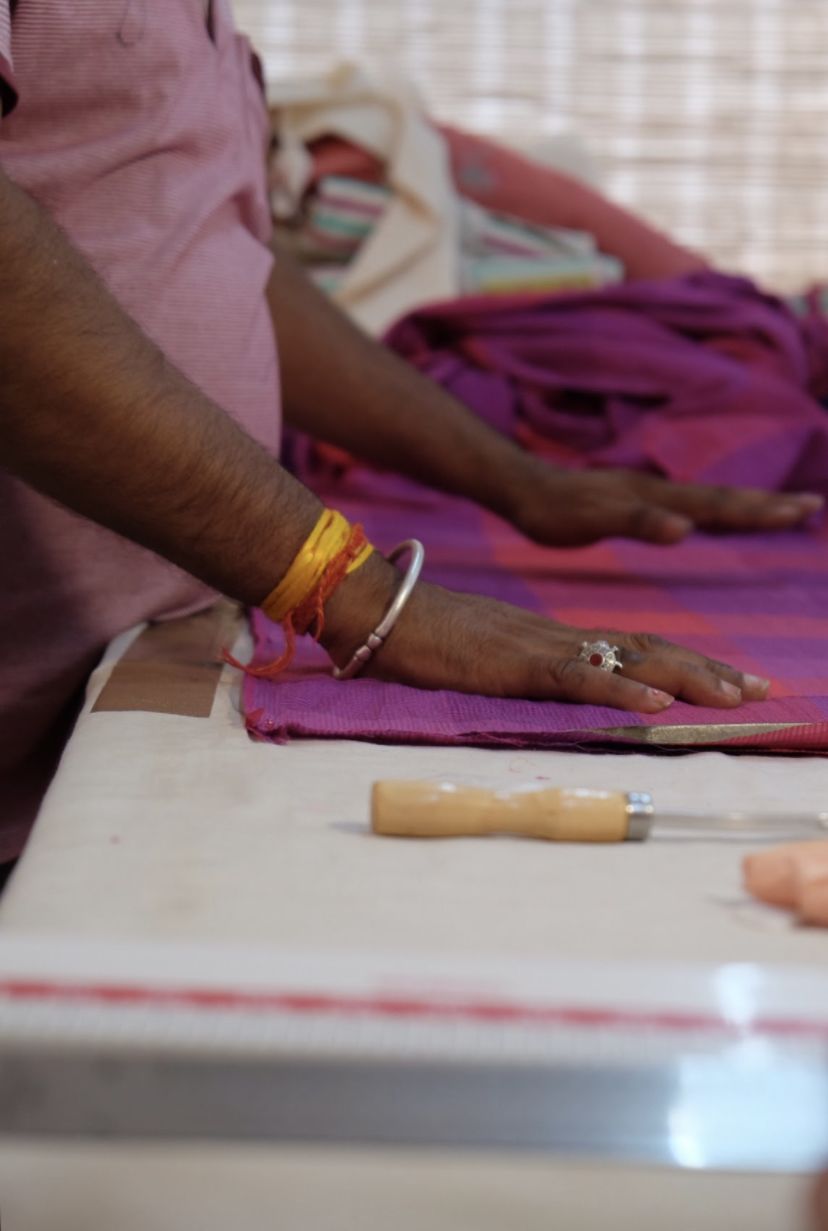The rise of sustainable fabric
Transforming fashion's environmental footprint forever
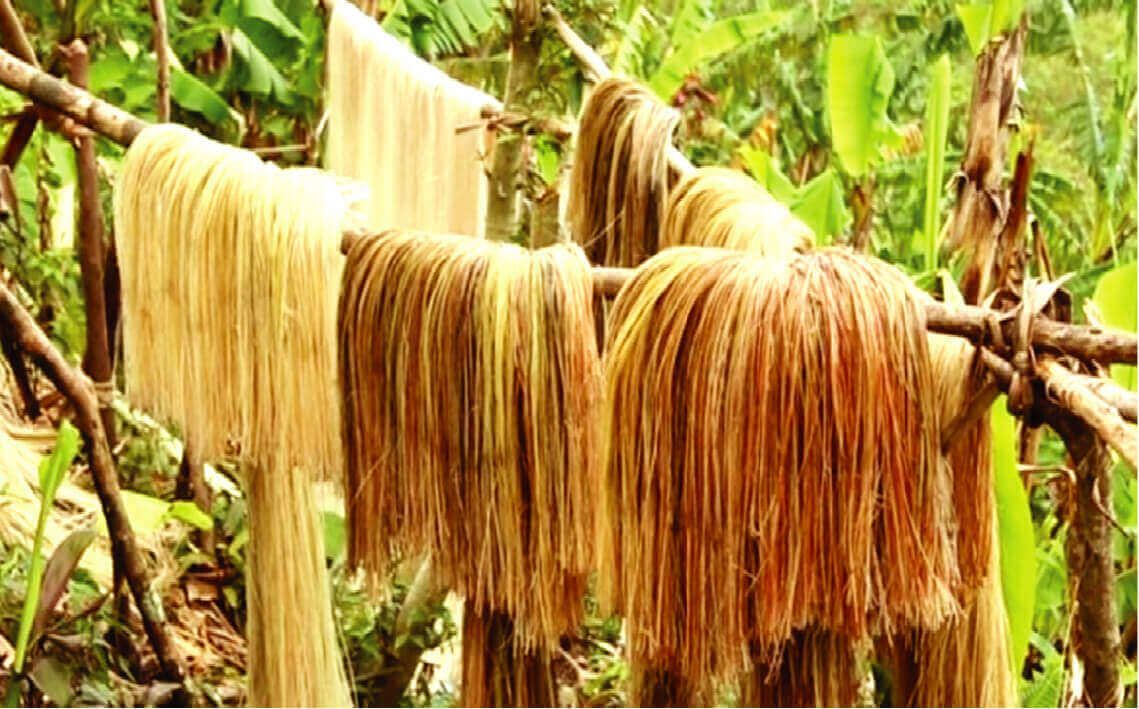
Ripe For Change
The humble banana is re-shaping sustainable fashion
by Sidiksha Lashkar
Photography by Sahib Singh
Models: Rhythm
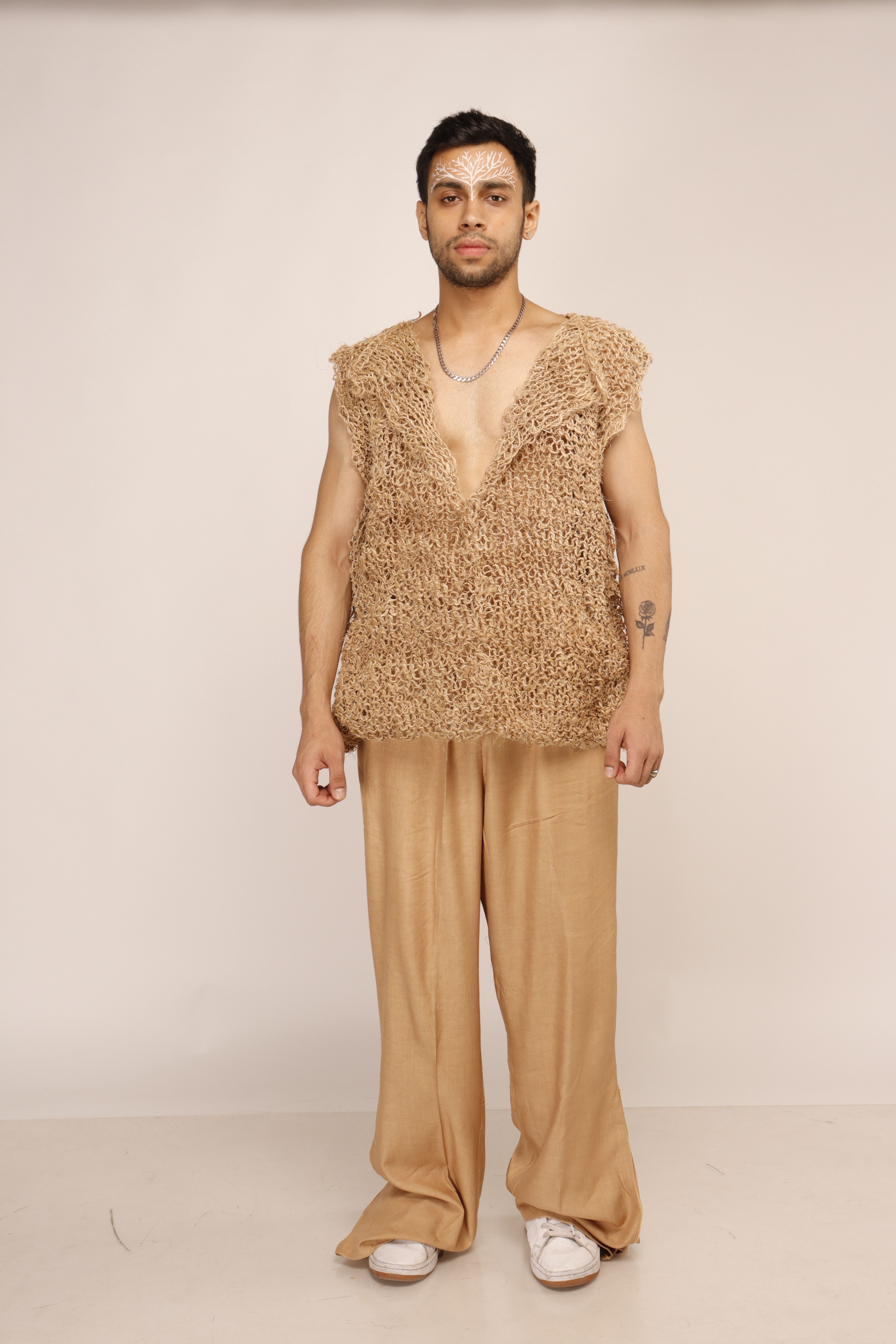
Banana vest with yarn
A vest fashioned from banana yarn that is thick and chunky.
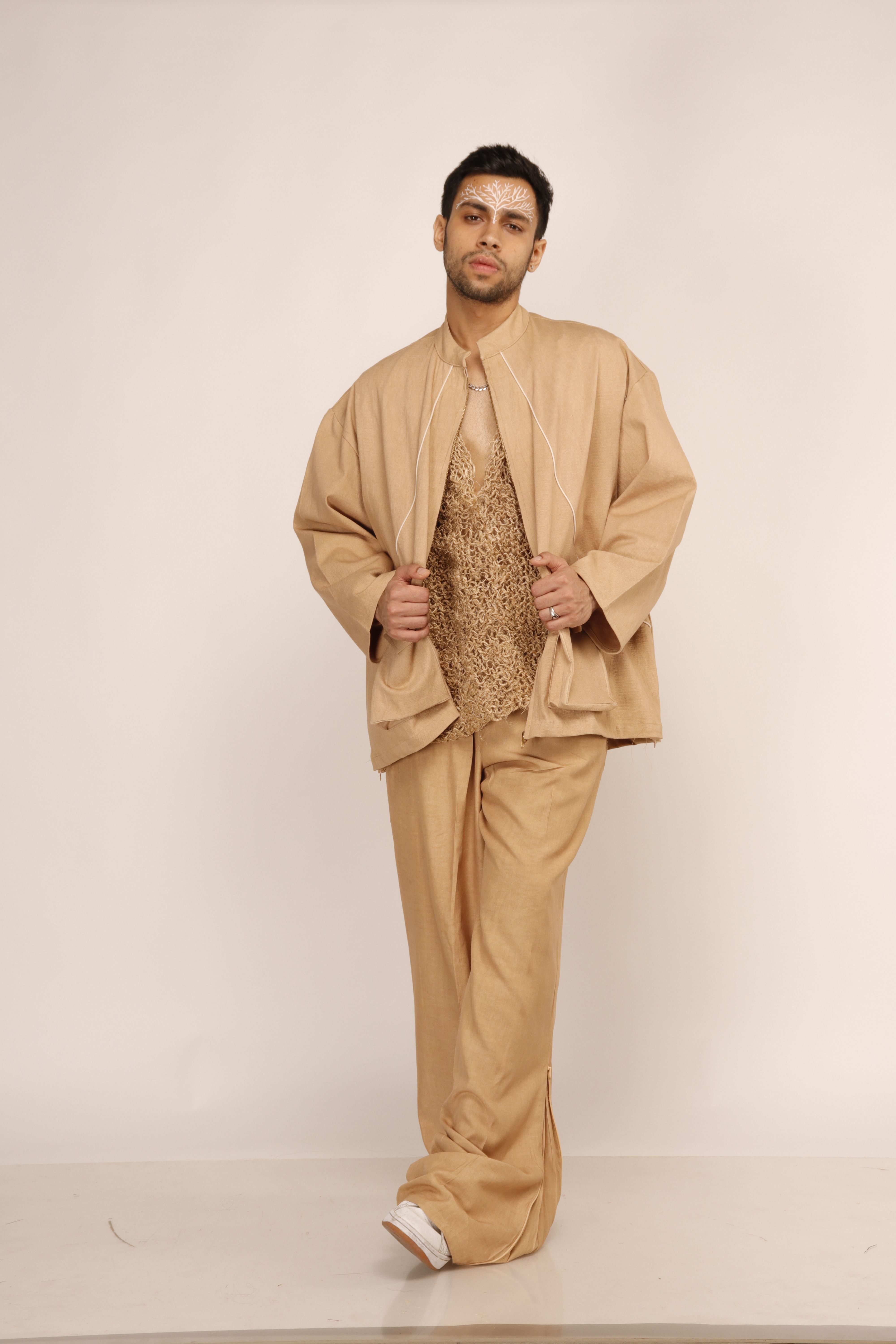
Jacket and trousers
Banana fibers are among the strongest and most durable.
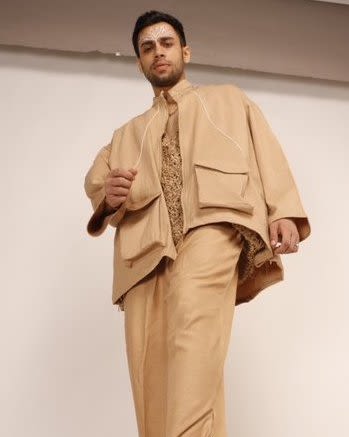
Breathable fabric
Banana fibers have breathable, moisture-wicking properties.

Design innovation
The banana plant has no dearth of raw materials.

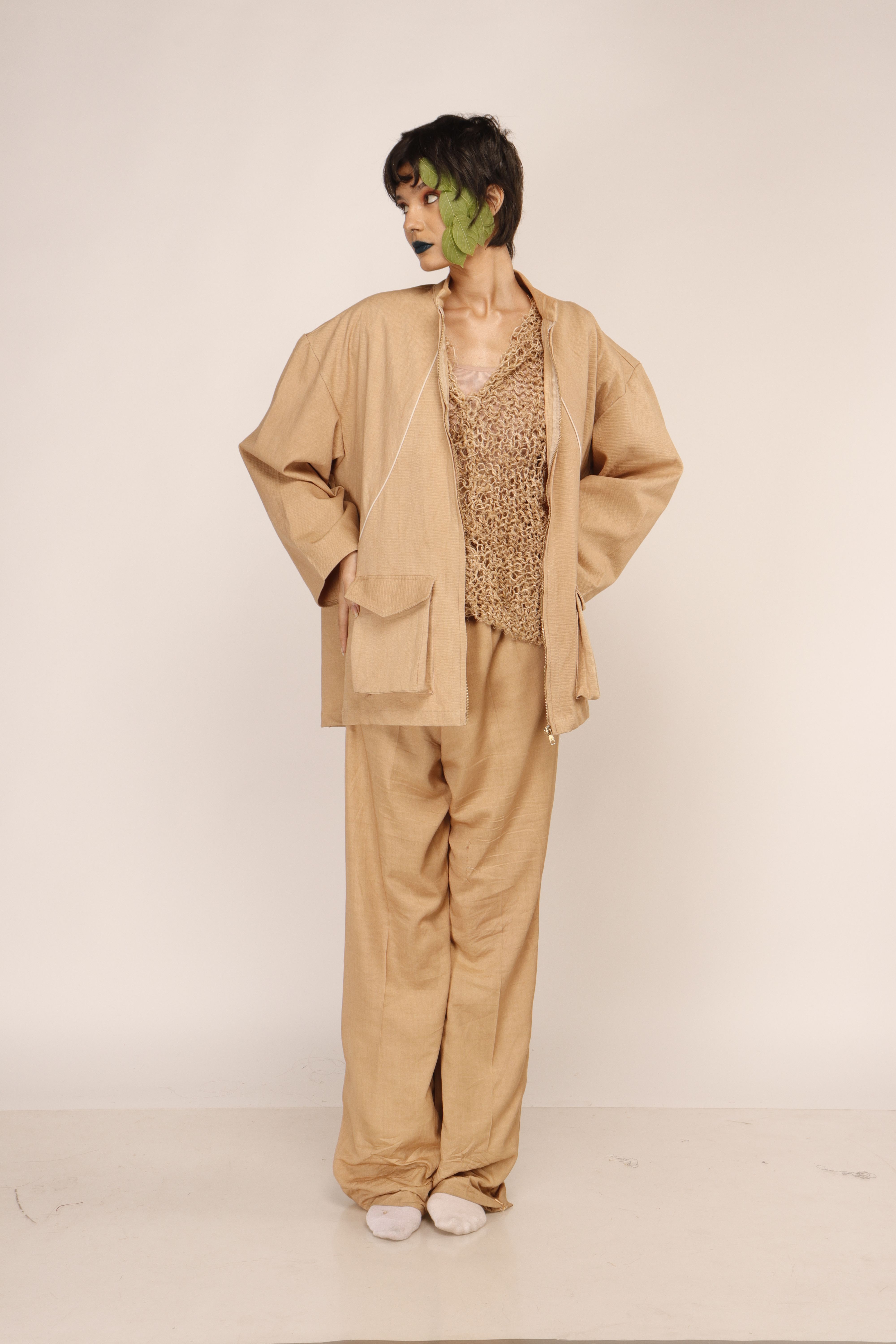


Exploring sustainable materials, the students of fashion design at Pearl Academy, are working on an unusual yarn made from banana peel. To bring their vision to life, the students obtained banana yarn from the Indian state of Bihar and banana fabric from Chennai, Tamil Nadu, India.
Designing garments that embrace the sustainability aspect of the fabric, they've kept colour dyes to a minimum. The banana fabric retains the natural colour of the yarn and the garments are straight-lined, adding to the futuristic look of the designs.
There are large banana plantations in the east and southern states of India. These fast-growing trees have a fruit pulp which is eaten in a variety of ways, with the bark and fruit peels often thrown away. However, these discarded parts can be utilised to be spun and then woven into useful and environment-friendly cloth.
Achieving circularity is the main aim of the students working on this project. Their aim is to reduce waste and increase resource efficiency by achieving a circular material life cycle. In order to gauge the sustainability barometer of a garment they have created a hypothetical star rating system which gauges the fair-trade practises of a garment in production and the mono-materialism of the product. This star rating guarantees that all steps, from sourcing raw materials to producing the finished items, follow ethical and sustainable standards.

A vest spun from banana yarn and a jacket made from banana fabric makes for interesting textures.
A vest spun from banana yarn and a jacket made from banana fabric makes for interesting textures.
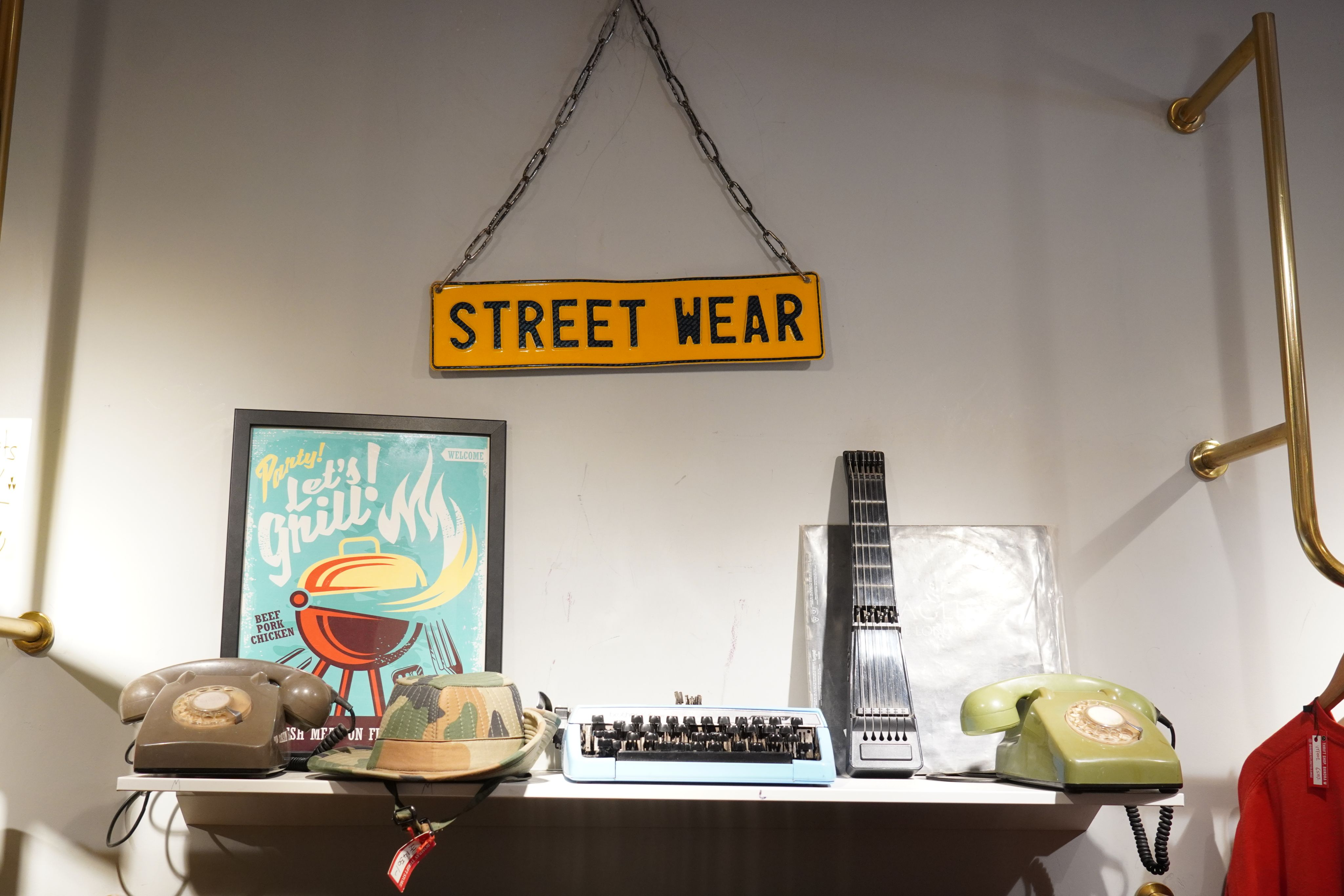
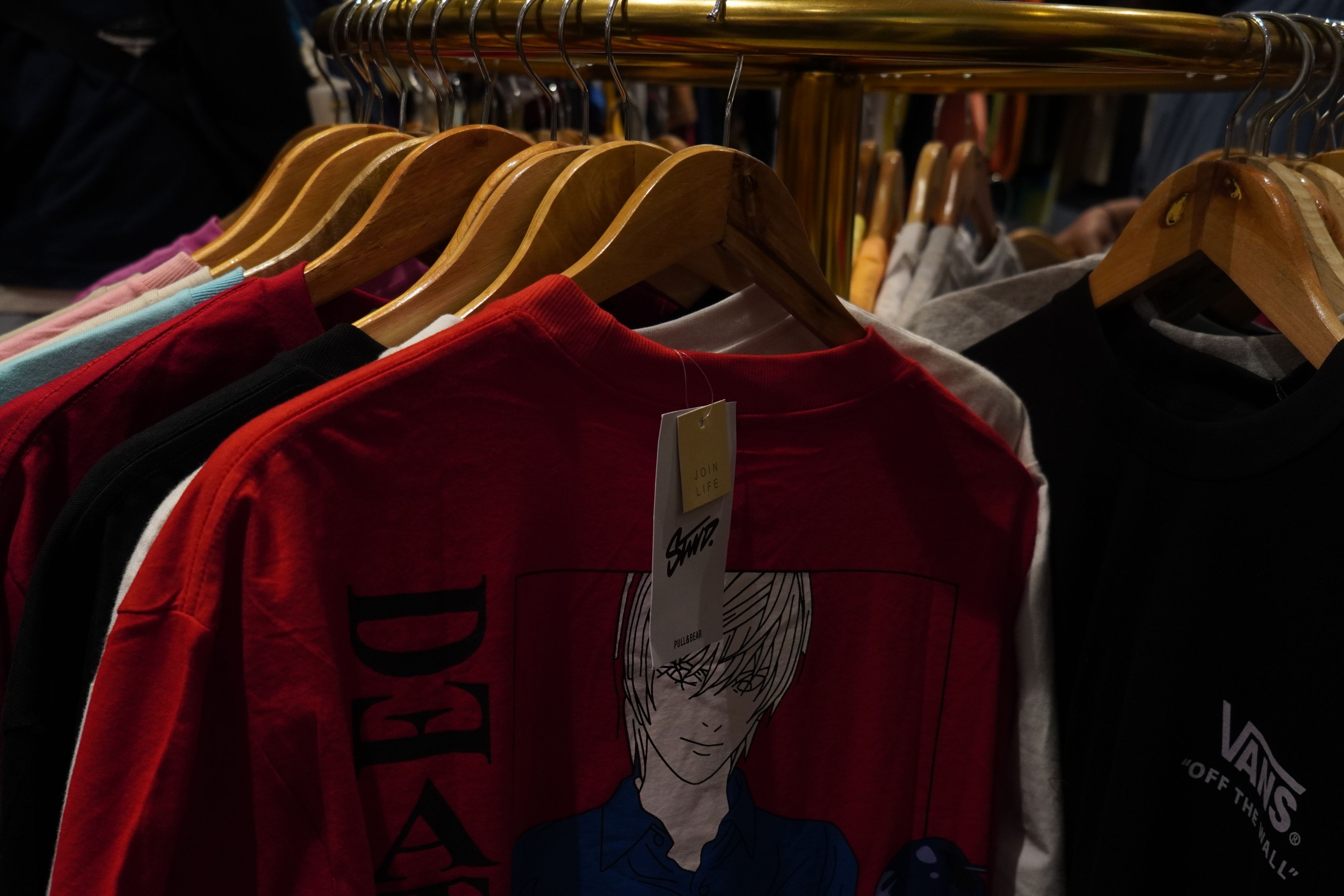
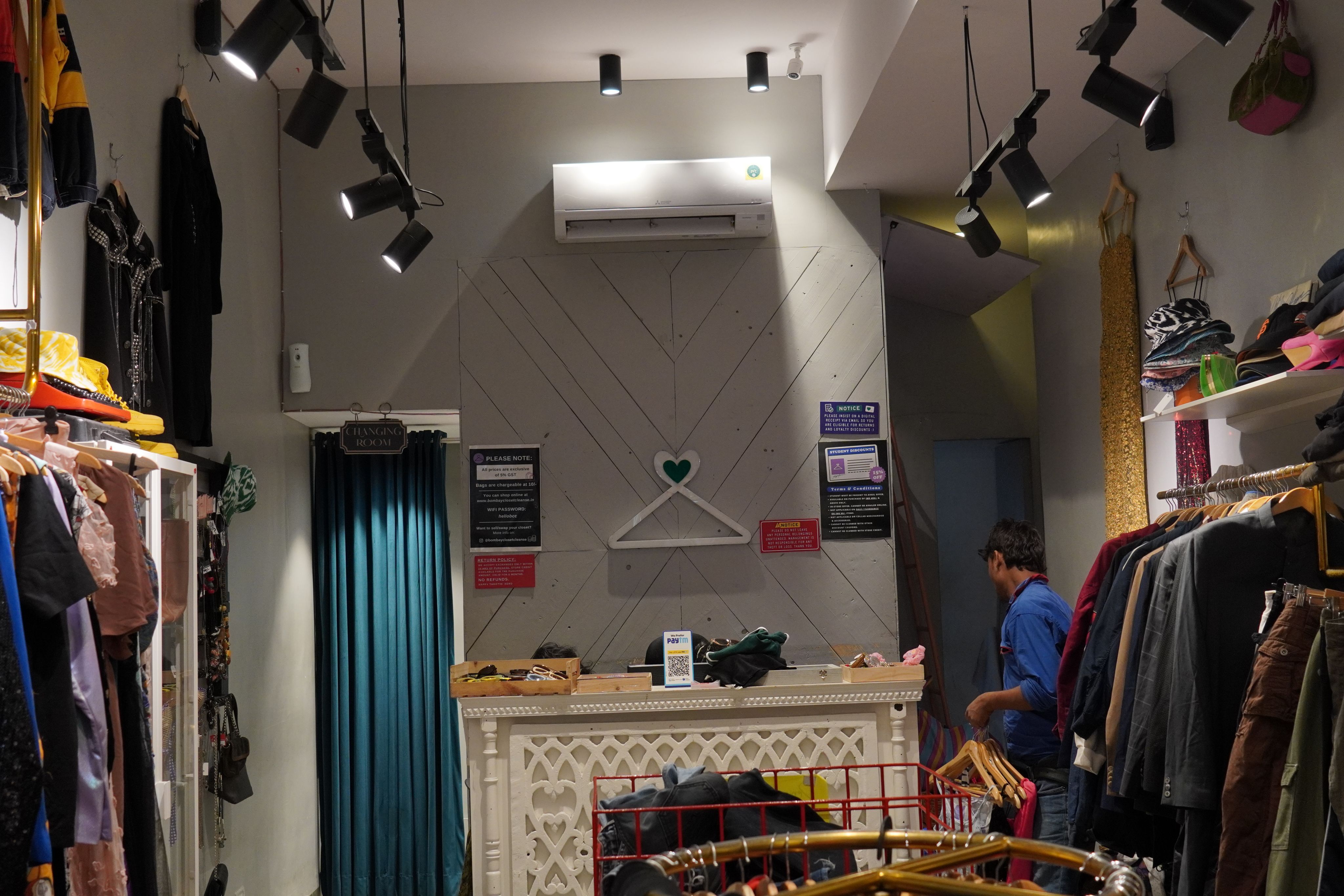
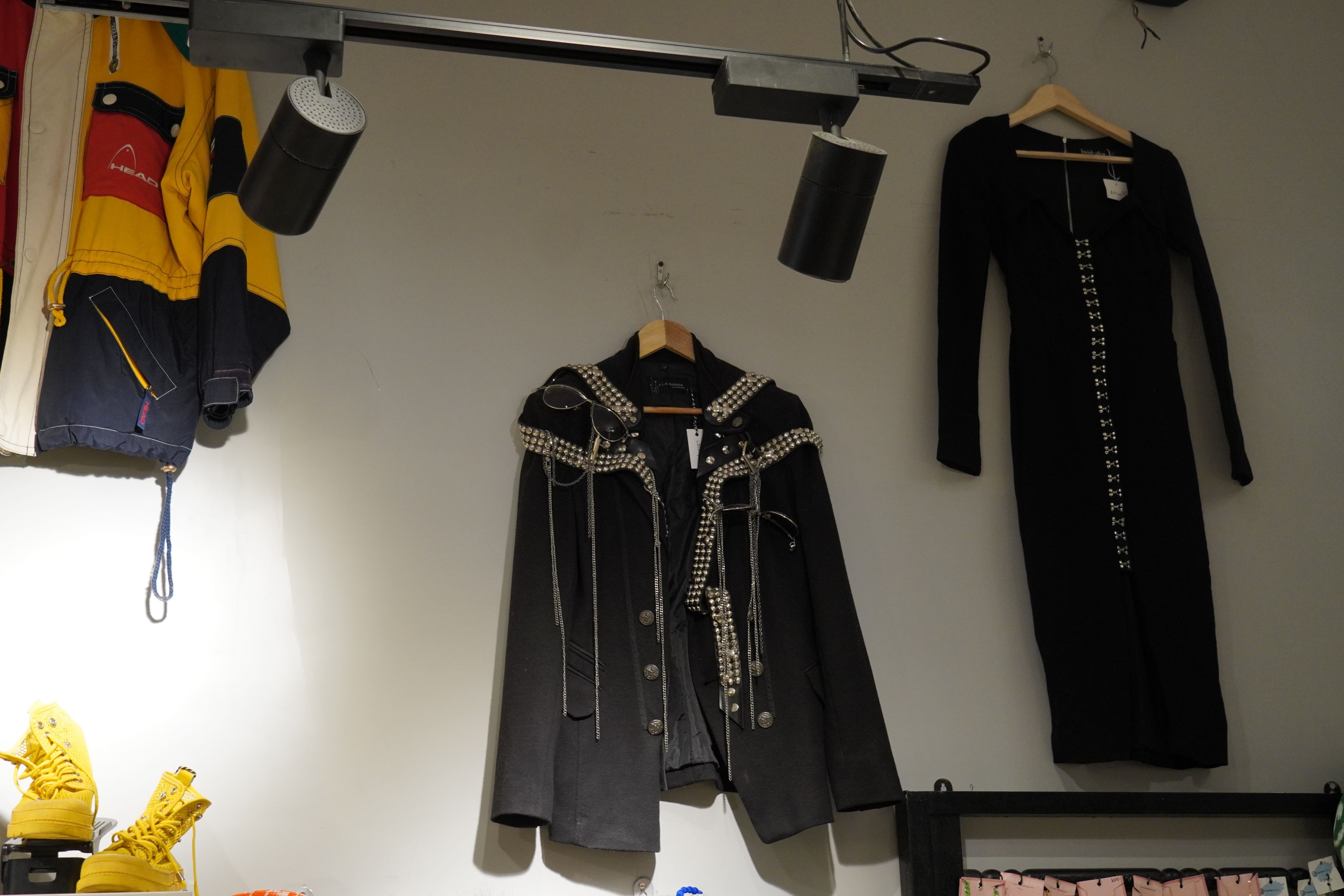
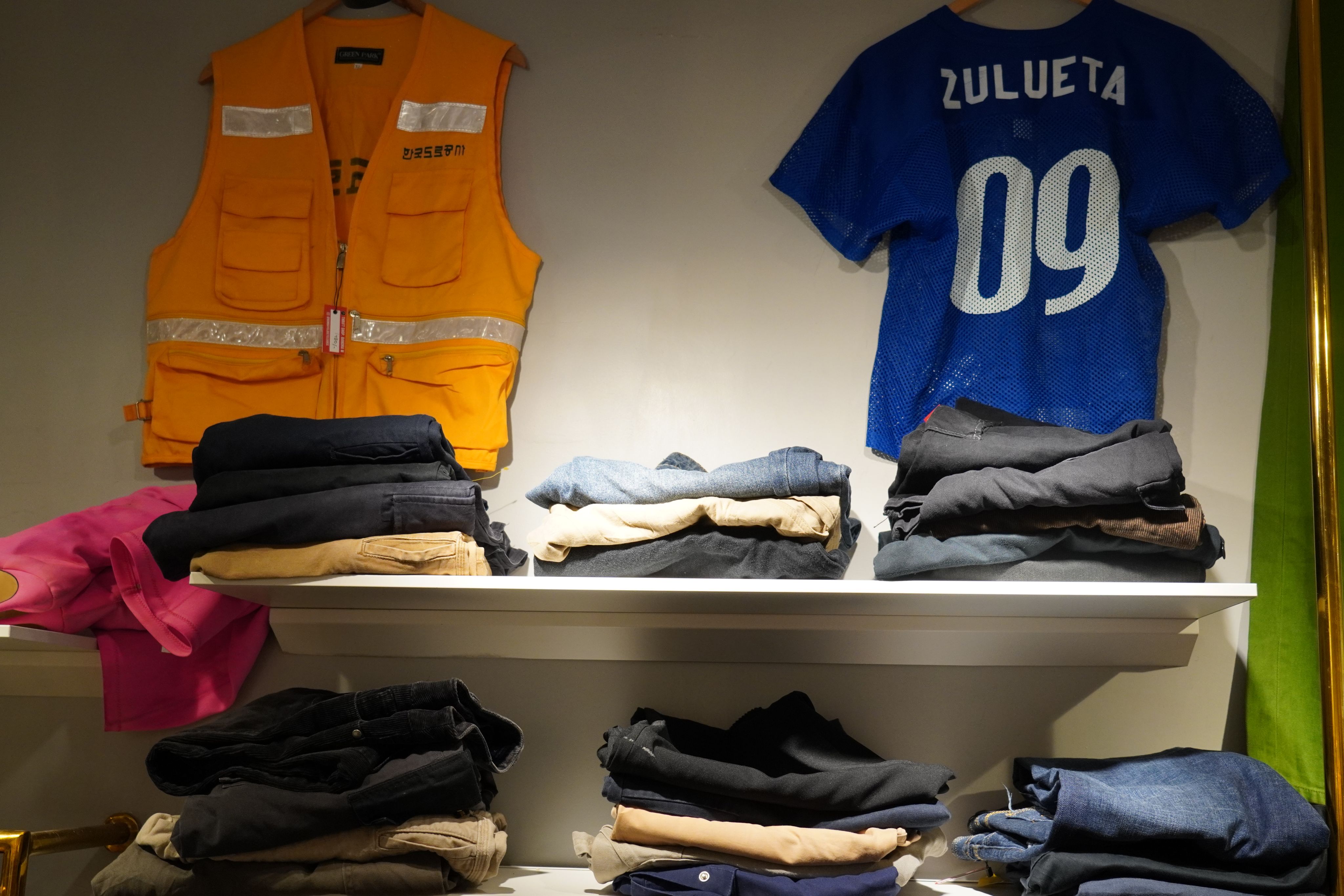
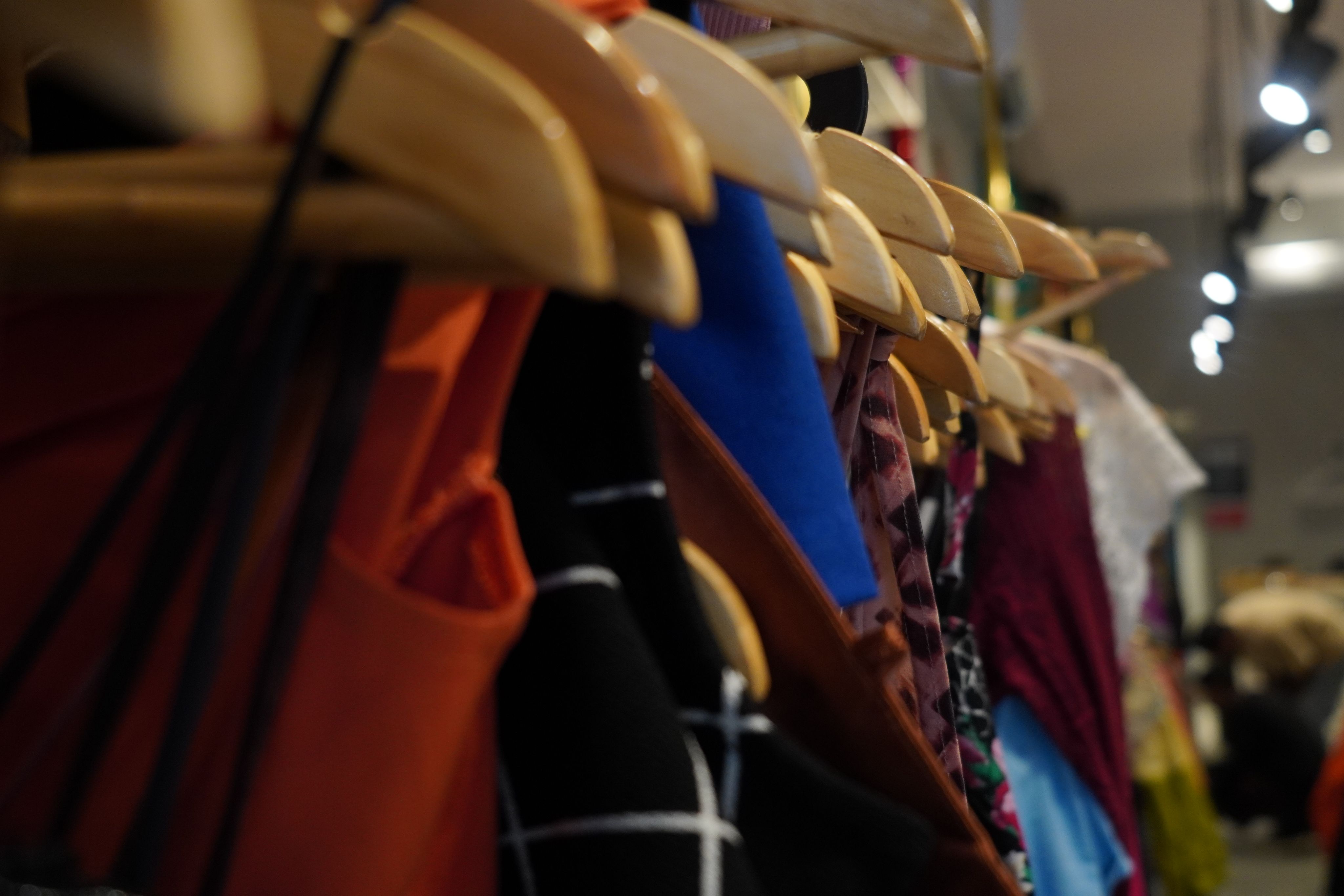
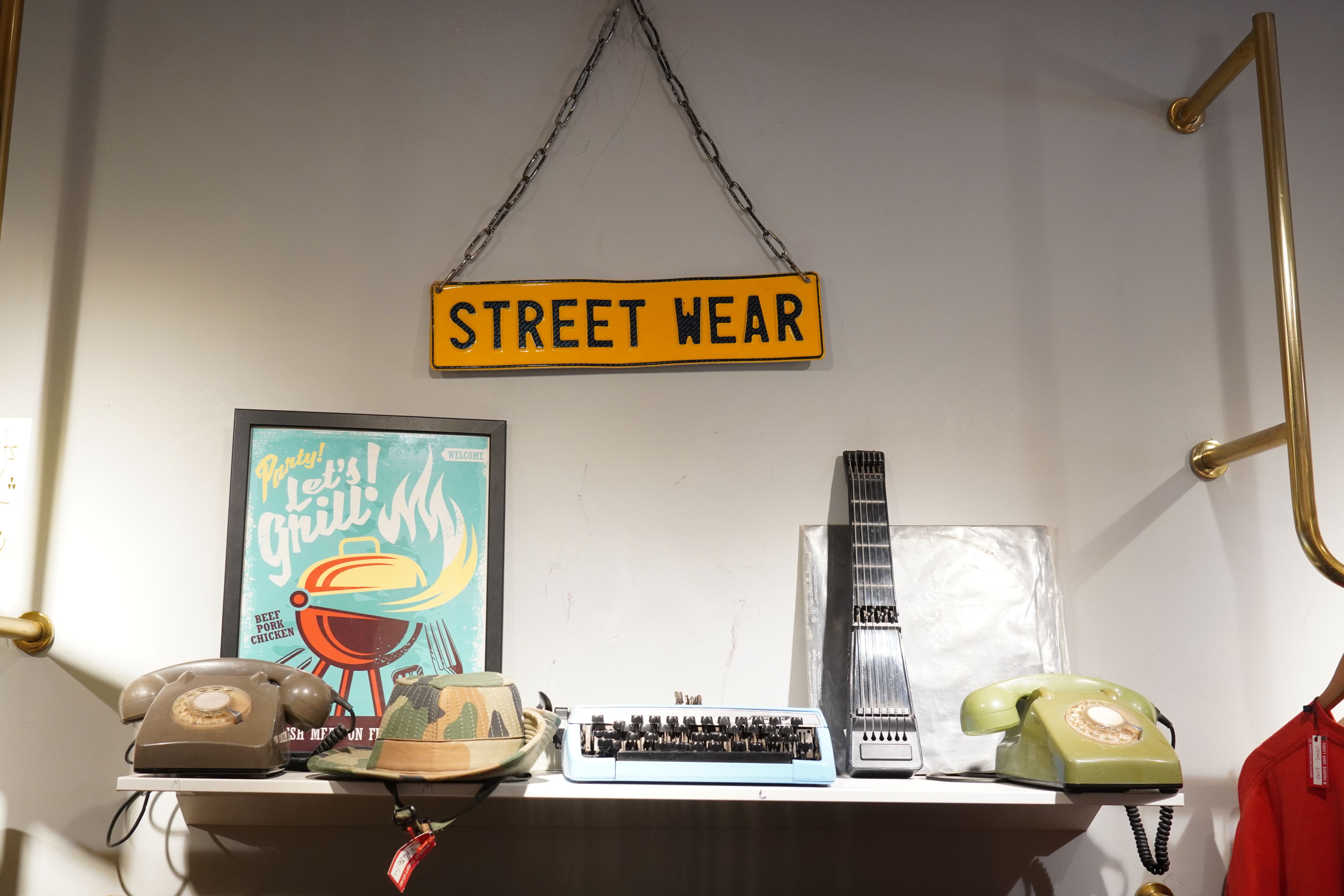
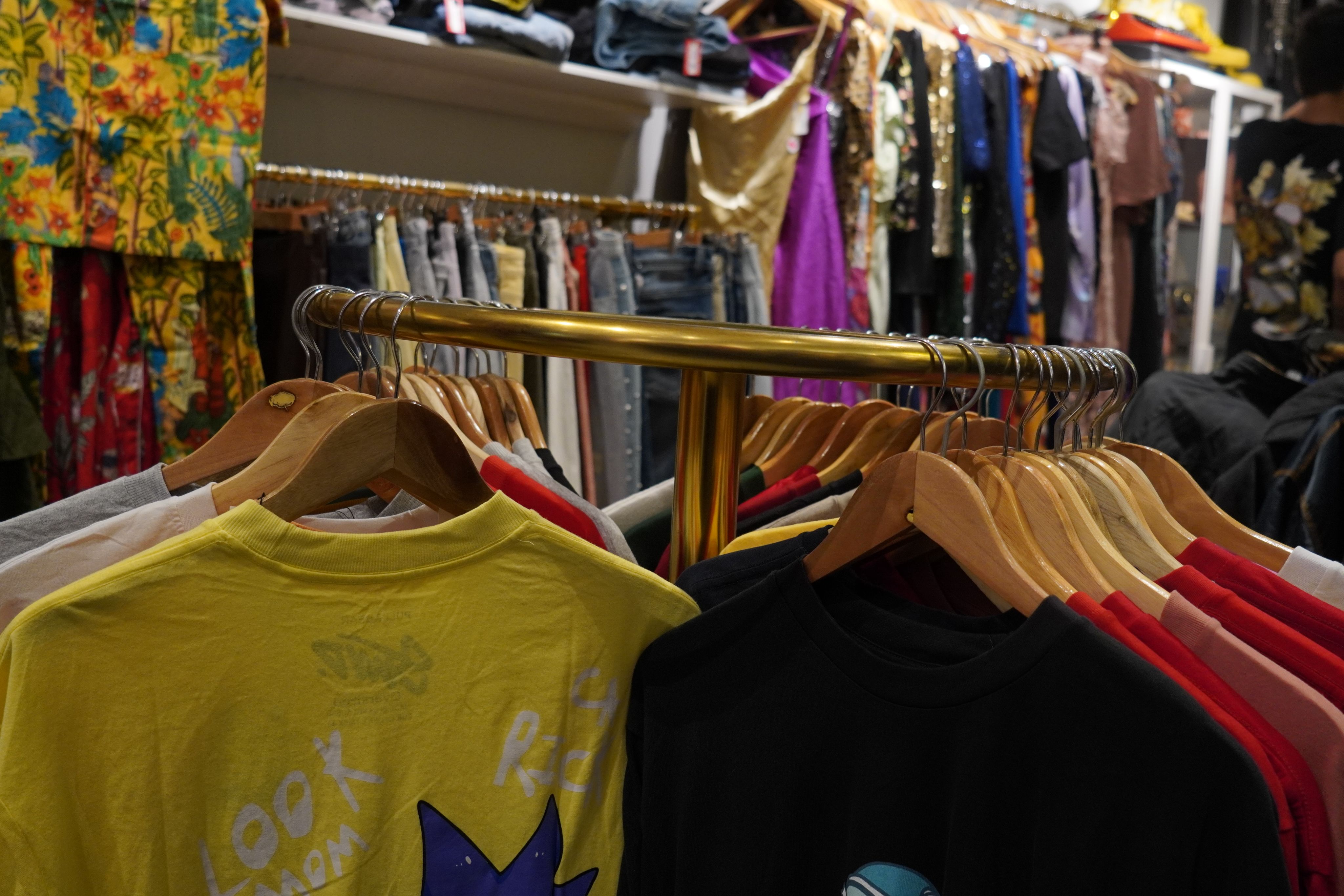
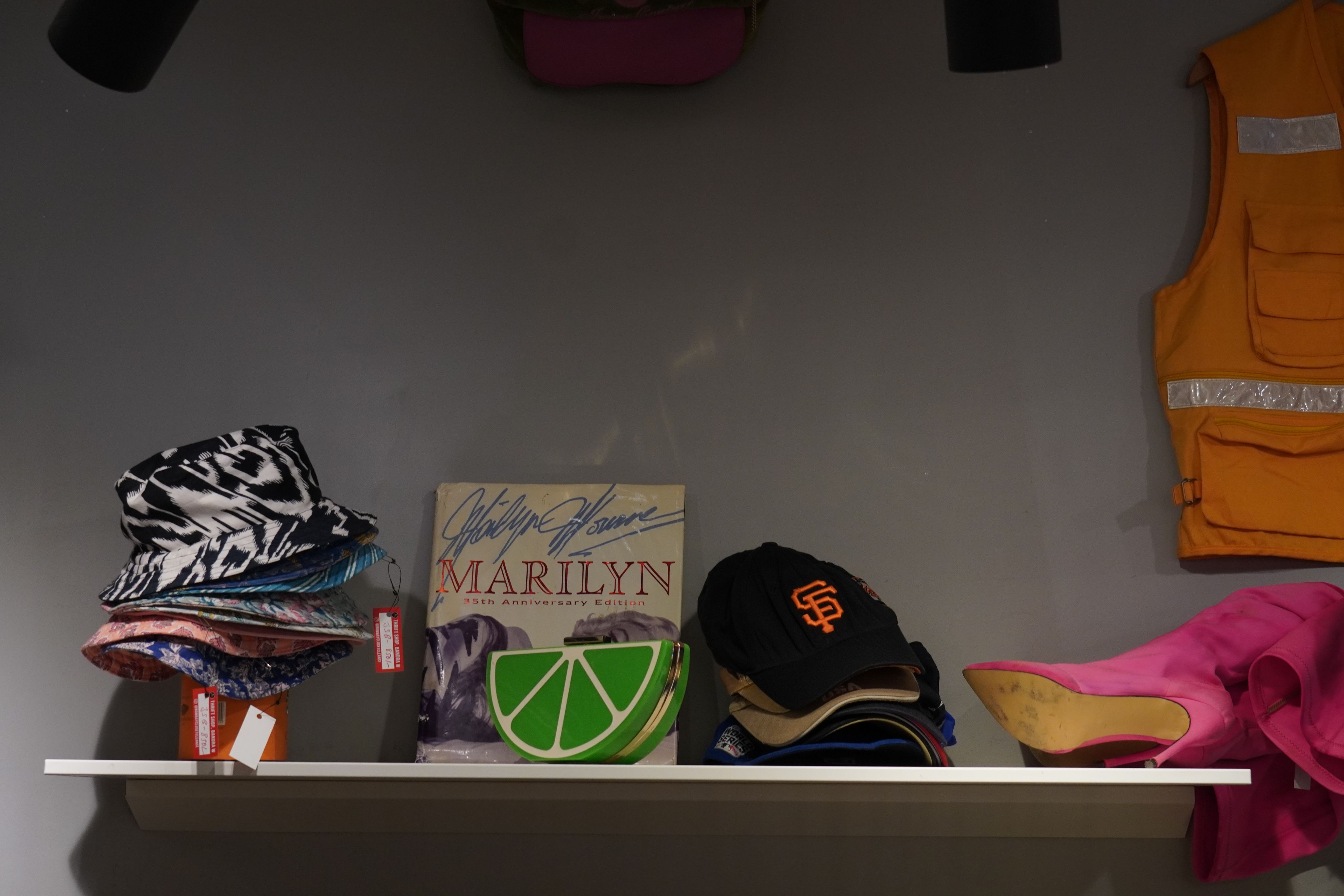









Bombay Closet Cleanse
A thrift store which stocks unique objects
Photo story by Soumya
The Bombay Closet Cleanse Mumbai Thrift Store is a unique and innovative concept that aims to promote sustainability through the reuse of clothing items. With fast fashion being one of the largest contributors to environmental degradation, this store provides an alternative solution for conscious consumers who are looking for affordable, yet stylish options. The keyword 'cleanse' signifies the importance of decluttering our wardrobes and donating unwanted clothes to give them a second life instead of contributing to landfills. The store provides a curated collection of pre-loved garments that have been carefully selected based on their quality and style, catering to individuals.
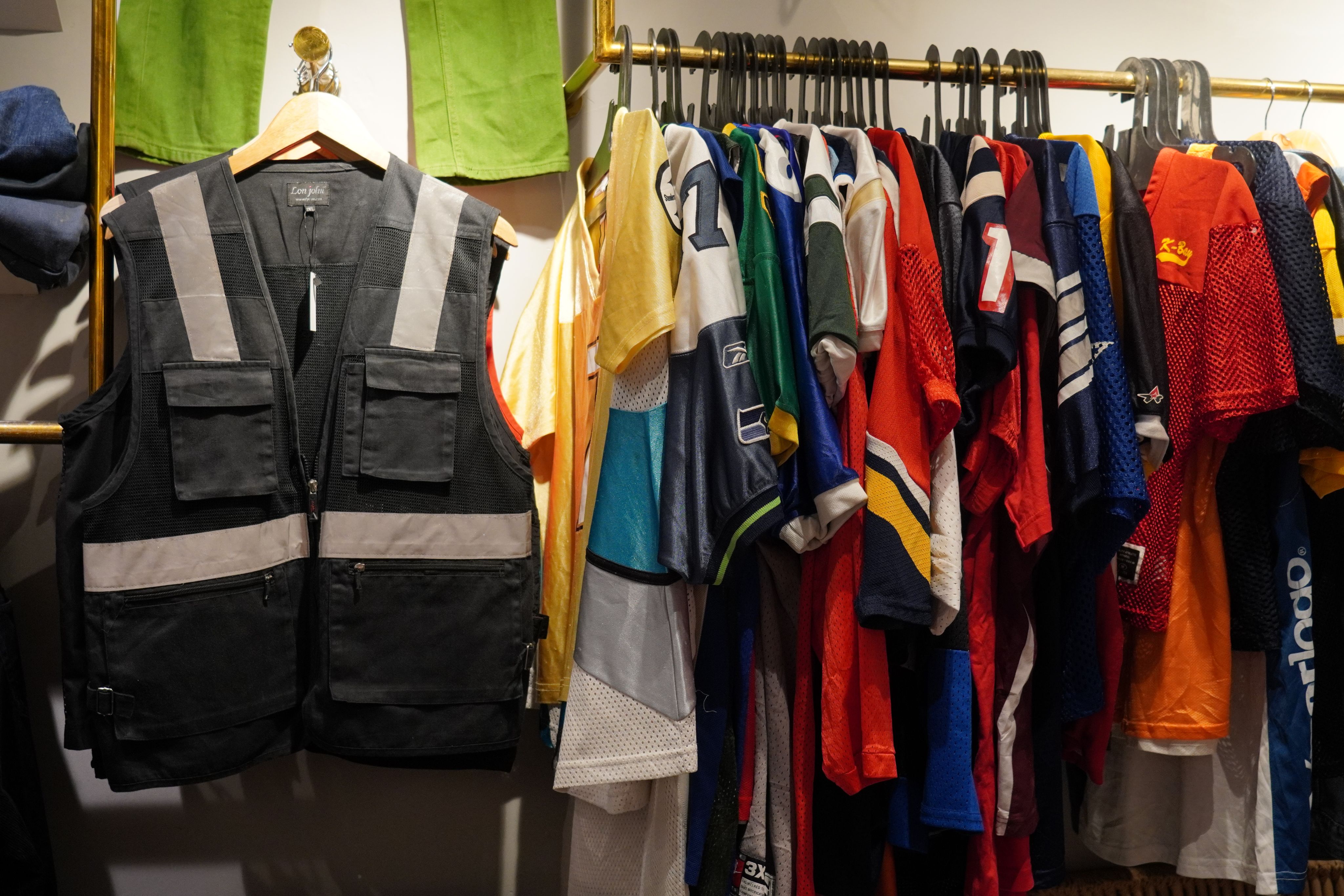
Fashion with a conscience
By Idhita, Ivanka, Manasa, Naina and Sahib Singh
Compiled by Naina and edited by Idhita
Without jeopardising Earth's life support system or leaving anyone behind, sustainability focuses on preserving the environment, reversing climate change and fostering social growth. With this idea, we can meet our immediate demands without sacrificing resources for future generations.
When discussing sustainability we need to consider it from three angles, sometimes called the three pillars of sustainability: environmental, social, and economic, or profit, planet, and people.
1. Environmental protection is one that is most commonly debated. In the context of a supply chain, it is concerned with reducing carbon footprints, water use, non-decomposable packaging, and wasteful operations.
2. Social development entails treating workers fairly and ensuring that stakeholders, customers, and the society in which a business operates are treated in a responsible, ethical, and sustainable manner.
3. Economic development is probably the simplest form of sustainability.
The globe is becoming environmentally concerned, especially with clothing manufacturers. Over the past decade, sustainable fashion has been steadily growing, and it now appears that it will take off. This calls for numerous adjustments in the sector, ranging from packaging to consumer spending.
Apparel brands follow some sustainable practices
Ethical Fashion: this means considering all aspects from production, labour conditions, and fair trade principles. A company that practices ethical fashion ensures that no people or animals are harmed throughout the manufacturing process.
Circular Fashion: promotes the use and circulation of all materials and goods in society for as long as is practical while also being fair, efficient, and safe for the environment.
Slow Fashion: considers the entire product lifecycle and takes a long-term perspective, is the opposite of fast fashion.
Conscious Fashion: more of a statement aimed at encouraging and informing consumers to support the green fashion movement by purchasing eco-friendly products.
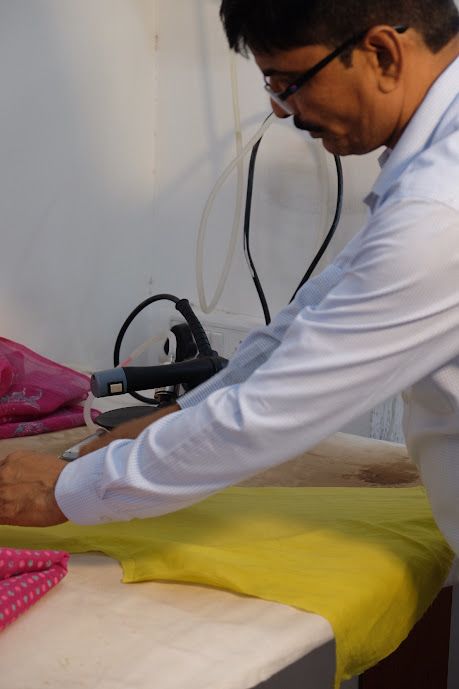
Encouraging Slow Fashion- Photography by Idhita, Ivanka and Poorva
Encouraging Slow Fashion- Photography by Idhita, Ivanka and Poorva
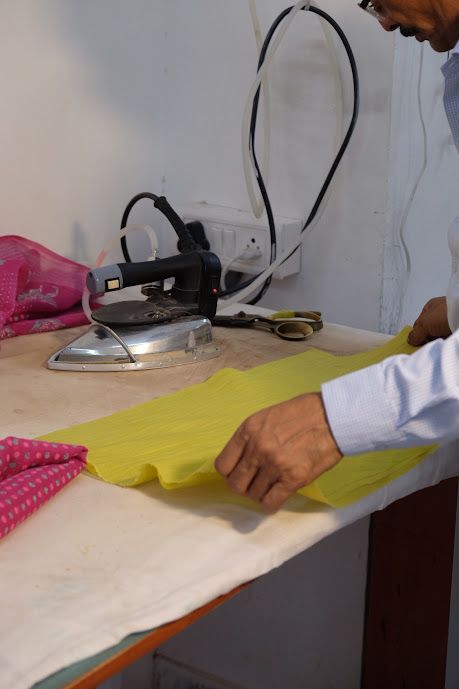
Encouraging Slow Fashion- Photography by Idhita, Ivanka and Poorva
Encouraging Slow Fashion- Photography by Idhita, Ivanka and Poorva
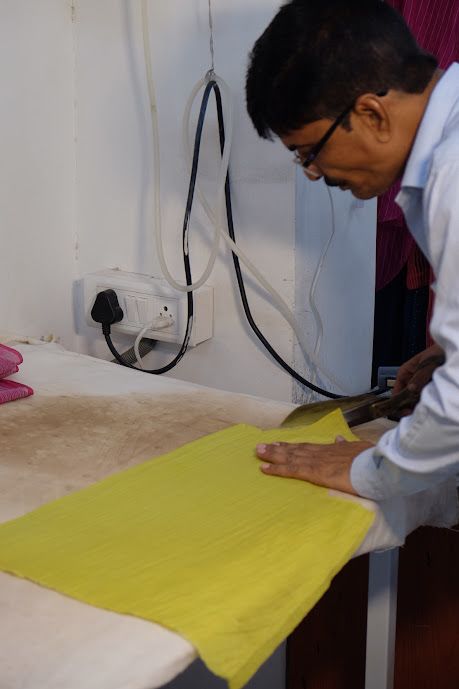
Encouraging Slow Fashion- Photography by Idhita, Ivanka and Poorva
Encouraging Slow Fashion- Photography by Idhita, Ivanka and Poorva
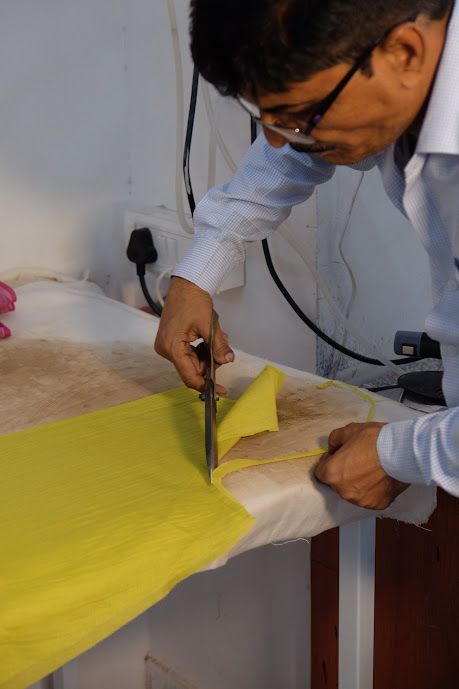
Encouraging Slow Fashion- Photography by Idhita, Ivanka and Poorva
Encouraging Slow Fashion- Photography by Idhita, Ivanka and Poorva
Bunko Junko, a planet-friendly brand
Bunko Junko was started by Bhavini Parikh in 2018, she used to work for other companies doing work like white labelling, surface ornamentation, etc. When she learned that textile waste was being improperly disposed of in local landfills, she had the idea to use the material to create goods that would reduce waste. So at first, she made the products out of textile scraps and her daughter helped her to sell those at an exhibition, after receiving a good response, her daughter suggested to start a brand, so she took that idea forward and that’s how Bunko Junko began.
When Bhavini used to do white labelling and surface ornamentation work, she needed people to work for her as she was receiving larger orders. During a conversation with her house help about this, she asked if she knew anyone in the area who would be interested in the work.
The house help suggested accompanying her to the area where she lived in to see if anyone would be interested. Upon visiting, Bhavini found it to be a chawl with inadequate sanitation and many housewives. She asked the women if they were interested in the work, offering payment in return. They agreed, but mentioned their inability to work elsewhere due to their household and childcare responsibilities.
Bhavini soon hired them and agreed to let them work from home. Subsequently, more women joined the group. With this group of women, she started the brand Bunko Junko. Currently, approximately 95% of the employees are women, and she also assists socially challenged women by providing work opportunities. Bhavini strongly believes in female empowerment.
Interview with the owner of Bunko Junko, Bhavini Parekh. A report by Manasa and Soumya
Swatti Kapoor, a creative mastermind stitching threads of style and sustainability
Eco-friendly, made-to-order, and sustainable are all attributes associated with Label Swatti Kapoor. It represents a shift away from hasty buying and throwing away towards righteous decisions and an ethical way of life. It acknowledges that going green is no longer a trend but rather a need.
Swatti Kapoor, the owner and designer of label Swatti Kapoor, discovered her calling to weave a tale through her designs after working with Tarun Tahiliani for just over four years. As a result, her label was established. From stylish wrap shirts to anarkalis, her line offers all the types of clothing one might require for the wedding season.
Her whole line is handwoven and embroidered, and each pattern is designed with comfort and adaptability in mind. Of course, one cannot overlook the designer's preference for a muted colouring scheme.
Interview with the designer Swatti Kapoor by Idhita, Ivanka and Poorva.
Use Me Works, an organisation revolutionising sustainability in India
Use Me Works, founded by Meenakshi Sharma in 2017, is spearheading a sustainability revolution that transcends boundaries. With a profound commitment to environmental stewardship, this organisation is effecting positive change while uplifting a group of women from diverse backgrounds.
The women involved in Use Me Works have triumphed over challenges, overcoming limited exposure and family restrictions to emerge as champions of sustainability. By establishing a workspace a mere 100 meters from their homes, they have drastically reduced commuting distances, resulting in lower carbon emissions and a greener footprint.
At the heart of Use Me Works' sustainability ethos lies a commitment to upcycling. By repurposing materials and breathing new life into discarded items, the company exemplifes principles of a circular economy. This approach significantly reduces reliance on virgin resources and minimises the environmental impact of production.
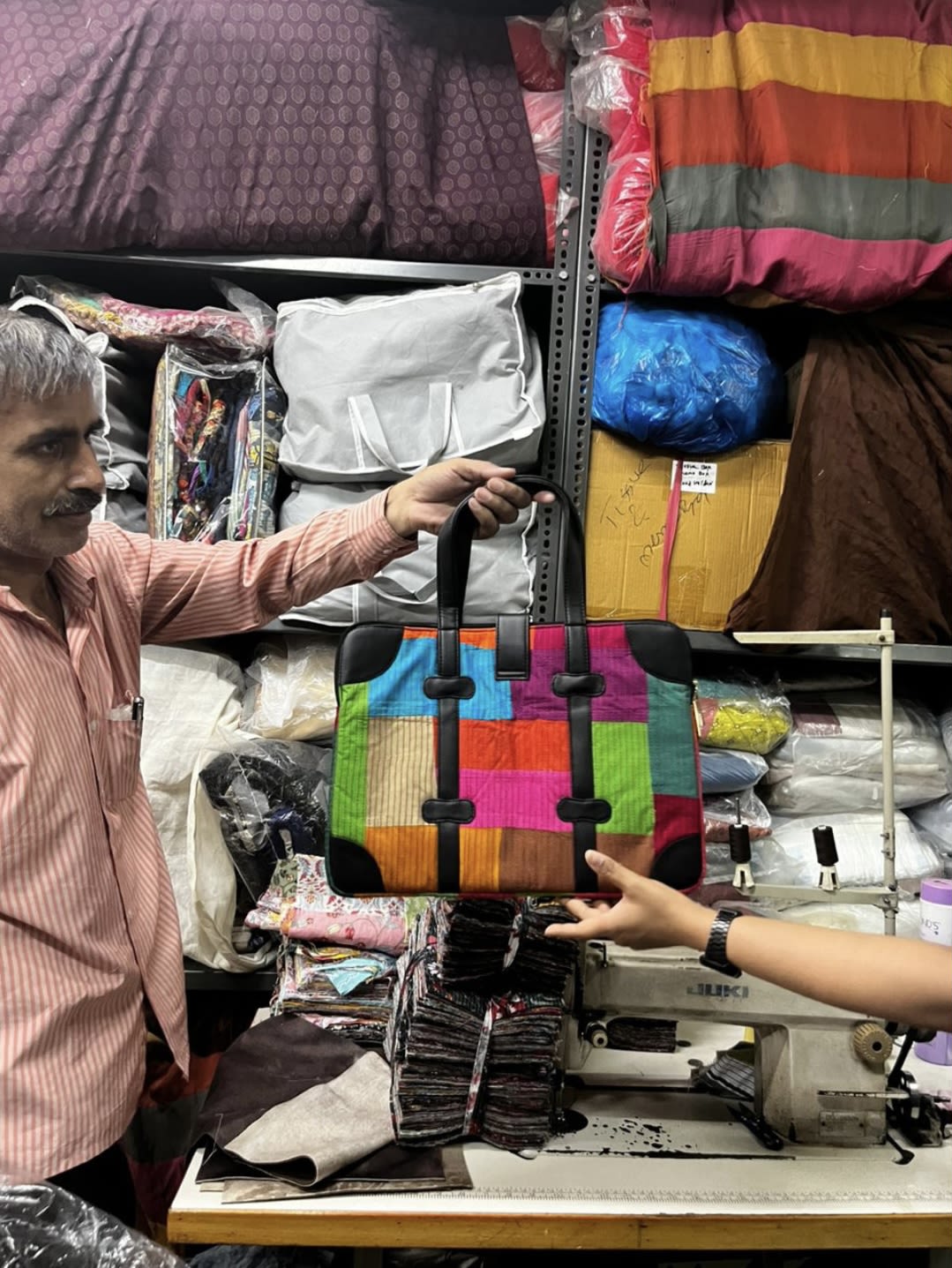
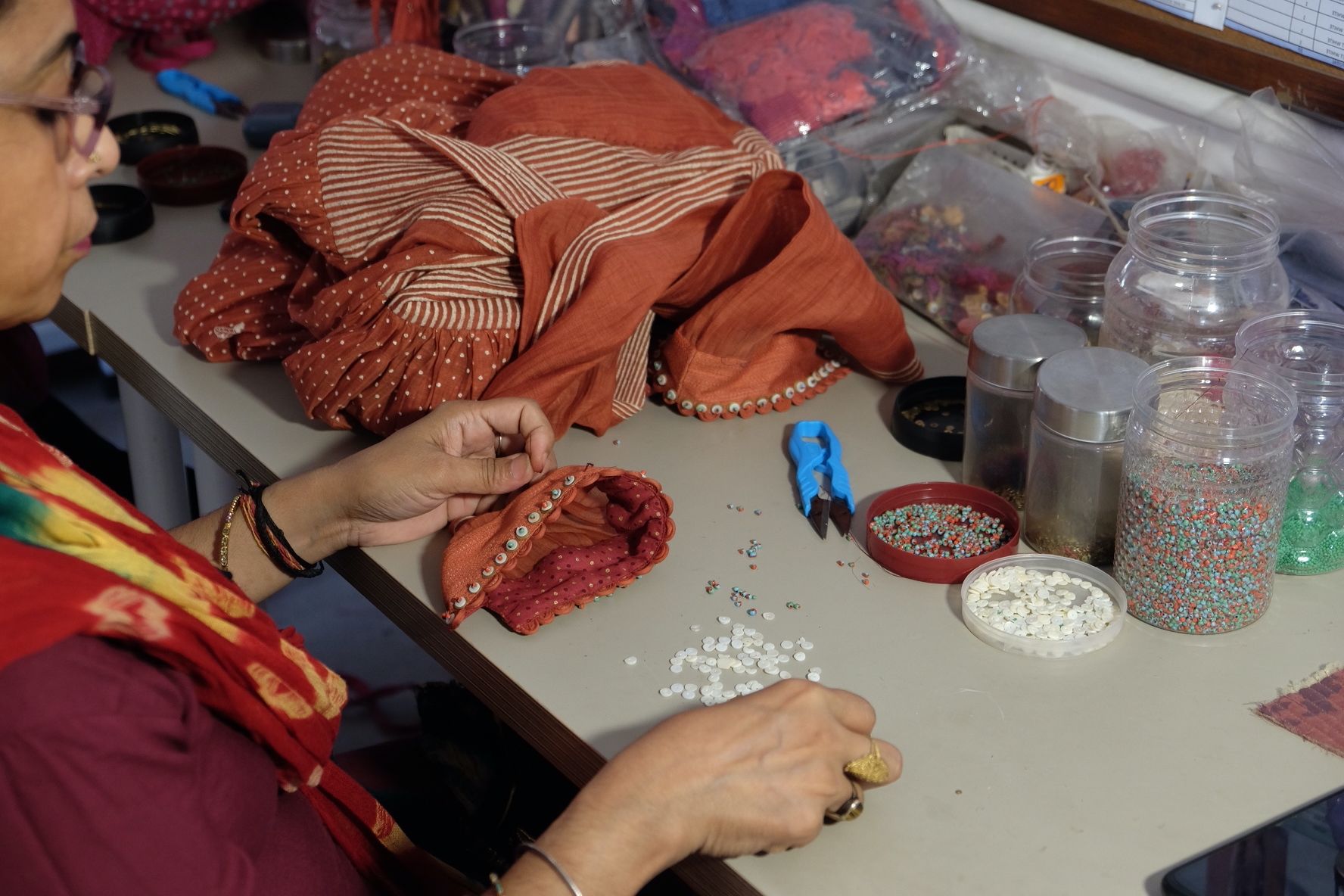
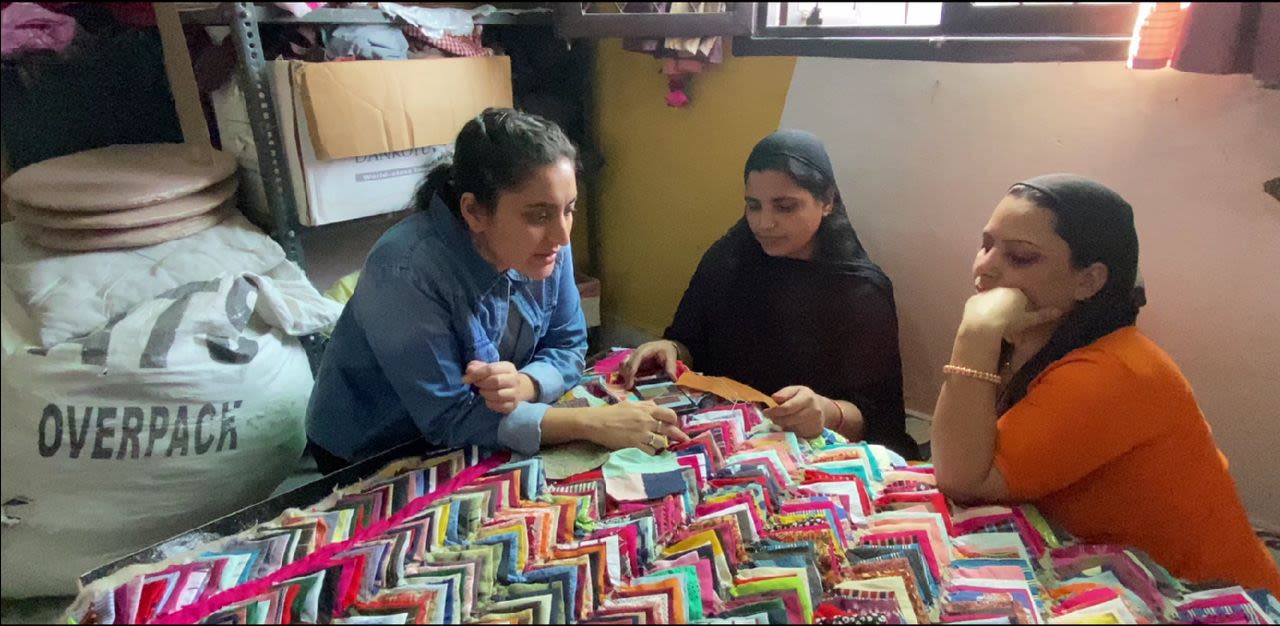
Conversation with a Thrift Store Consumer by Manasa
The climate crisis has sparked a current movement towards sustainability. This is also a more appealing priority for businesses as people begin to live more sustainable lives. It is likely, in the future, business will be expected to make a positive impact over the whole value chain, and companies will be held accountable for all aspects of industry, and any environmental damage or harmful emissions should be limited or removed from the production processes.
It is also expected that resources will be reused to suit the global increase in population in what is commonly referred to as a ‘circular economy’. This change would allow one person’s waste to be another’s resource, in a process that would greatly reduce waste and create a more efficient supply chain.
To support the United Nations' Sustainable Development Goal Number 12, to ensure sustainable consumption and production patterns, media students from
Pearl Academy, India and journalism and fashion students of Manchester Metropolitan University, UK collaborated to produce this multimedia article.
Contributors:
Henry Boyle
Idhita Arya
Ivanka Arya
Manasa Veluri
Naina Patney
Phoebe Rawding
Poorva Sharma
Sahib Singh
Sanskriti Shreshtha
Sidiksha Lakhar
Soumya Singh
